I was a junior in high school when I experienced my first panic attack.
It all started with one fleeting thought:
"How do I know if I'm alive?"
Except it wasn’t fleeting at all. It dug its claws into my brain and took complete control.
"What if I wasn’t part of the same reality as my family? What if my family is dead and I’m alive? How do I know what’s real and what isn’t?"
I always felt this responsibility to make sure everyone was safe all the time. And I always felt like I had control over that. But when this thought triggered a panic attack—one that left me feeling physically and mentally detached from reality—that certainty disappeared. I felt lost. Suddenly, the idea that a single action or thought could unravel my understanding of what was real became unbearable. The fear paralyzed me.
It felt like I was constantly
on the edge
of losing everything.
At the time, I didn’t know that what I was experiencing had a name—Existential OCD. All I knew was that I never wanted to feel that panic again—that feeling like I had slipped into an alternate universe. Because if I entered that place again, what if I never came out? What if I never saw my family again? I did everything in my power to prevent that from happening.
But you know what they say about the pink elephant—trying not to think about something only makes you think about it more. A lot more.
I was at the mercy of OCD for over a year. The fear shifted between two extremes—either that I’d be pulled into a reality where nothing was real, or that someone I loved (or even I) would die. No matter what, it felt like I was constantly on the edge of losing everything. It was an exhausting time in my life, one I wouldn’t wish on anyone.
Every decision, no matter how small—what I ate, said, wore, and did—felt like a risk, like I somehow had the power to alter my existence in the world. I avoided certain foods, colors, even words, believing they held some kind of power over my fate. I couldn't fathom eating or drinking anything that didn’t come from my house. My mind convinced me that someone at school could poison or drug me, and if that happened, I’d never see my family again. The intrusive thoughts didn’t make sense, yet they felt like absolute truth.
Stepping on a crack in the sidewalk, making eye contact for a second too long—every tiny detail felt like it could jeopardize my existence or the lives of my loved ones. The exhaustion wasn’t just mental; it was physical, too. Nights were spent lying in bed, my mind racing, my body tense.
Physically, I was drained. Emotionally, I was barely holding on.
It was a constant, unbearable weight.
I learned that the panic, the fear, the compulsions—they weren’t me.
I lost so much of myself during that time. My relationships, my sense of identity—everything felt warped. I wanted to feel “normal” again, but it was like trying to climb a mountain in a storm.
It wasn’t until I finally sought help—Exposure and Response Prevention Therapy (ERP), medication, the gentle support of my family—that I began to understand what was happening to me. I learned that the panic, the fear, the compulsions—they weren’t me. They were a product of OCD. That realization didn’t make it go away immediately, but it was a turning point.
The first exposures were small—so small they almost felt insignificant. I would take a sip of water from my bottle, the very same one I’d brought from home, and remind myself that I was okay. I remember how difficult that first sip was. It felt like my body was fighting me, like I was doing something dangerous just by drinking from that bottle. But my therapist assured me that the fear was a product of OCD, not reality. That was the hardest part to accept—that the fear was just a distortion, something my mind was telling me that wasn’t true.
Slowly, I started to see that the more I let the fear control me, the stronger it became. By facing it head-on, by allowing myself to make decisions without perfection or certainty, I was taking back control, piece by piece.
Even though it was terrifying, I kept going. I pushed myself to do these exposures, even when every part of me wanted to retreat back into the safety of my rituals and routines. Therapy wasn’t a quick fix, but it helped me take baby steps.
You are not broken,
and you are not alone.
There were still hard days. OCD didn’t disappear, but I learned I didn’t have to obey it. The more I faced the fear, the less power it had. I stopped micromanaging my existence, stopped believing I could control everything. The freedom came in surrendering—not to the OCD, but to the reality that life is uncertain, and that’s okay.
Looking back, I can see how far I’ve come. But it wasn’t just about healing from OCD—it was about rediscovering who I was before it took over. The journey wasn’t easy, but it taught me that healing is possible, even when it feels out of reach. And while OCD may still whisper in the background, I now know: I don’t have to listen.
I often think about that time and the sheer determination it took to claw my way out of that darkness. It was an exhausting, painful experience, but one that taught me more about myself than I could have ever imagined. And even though I wouldn’t wish it on anyone, it made me realize that recovery is possible—no matter how impossible it feels in the moment.
If you’re in the thick of it right now, I want you to know this: You are not broken, and you are not alone. OCD will tell you that you need certainty, that you need control—but you don’t have to listen. Healing doesn’t happen all at once; it happens in the small moments, in the choices you make to step toward freedom, even when it feels impossible. And if I could get here, so can you.
My story of living with Existential OCD has many twists and turns. The thoughts, fears, compulsions, and illogic that consumed that year of panic can’t be summed up in one post. It will take time to paint the full picture.
So this is just the beginning.
Stay tuned.


0 comments